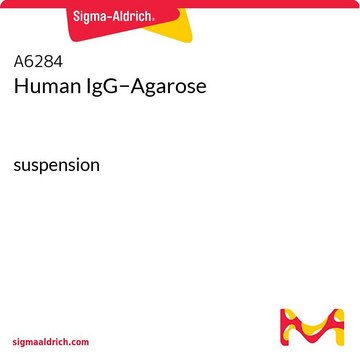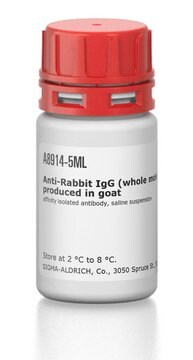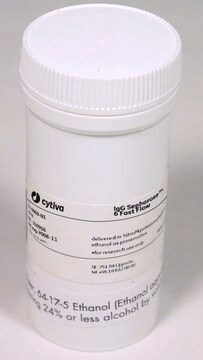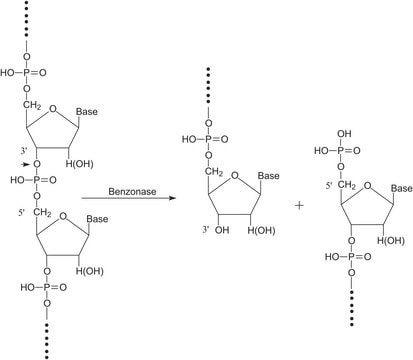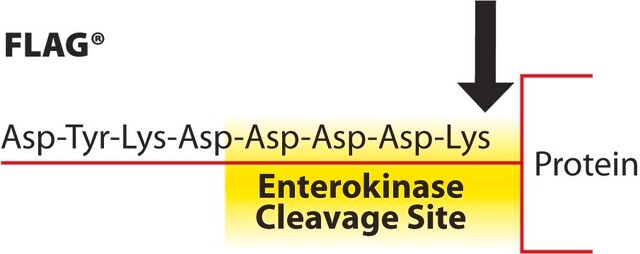A2909
Rabbit IgG−Agarose
saline suspension
Sinónimos:
IgG agarose beads
Iniciar sesiónpara Ver la Fijación de precios por contrato y de la organización
About This Item
Productos recomendados
conjugate
agarose conjugate
form
saline suspension
extent of labeling
≥5 mg per mL
technique(s)
immunoprecipitation (IP): suitable
matrix
cross-linked 4% beaded agarose
matrix activation
cyanogen bromide
matrix spacer
1 atom
storage temp.
2-8°C
General description
IgGs are glycoprotein antibodies that modulate several immune responses. IgG-Agarose is an immunoadsorbent that can be used to purify antibodies, remove species specific cross-reacting antibodies, or remove contaminating antibodies from an antiserum preparation. Characteristically, cross-reacting antibodies may be removed from an antiserum preparation using an equal resin volume of IgG-Agarose. However, the resin to antiserum ratio will vary with individual applications. Immunoglobulin G (IgG) is part of the immunoglobulin family and is a widely expressed serum antibody. It consists of a γ heavy chain in the constant (C) region. The monomeric 150kDa structure of IgG constitutes two identical heavy chains and two identical light chains with molecular weight of 50 kDa and 25 kDa, respectively. The primary structure of this antibody also contains disulfide bonds involved in linking the two heavy chains, linking the heavy and light chains and resides inside the chains. IgG is further subdivided into four classes namely, IgG1, IgG2, IgG3, and IgG4 with different heavy chains, named γ1, γ2, γ3, and γ4, respectively.
Application
Rabbit IgG antibody (20 μl/ml) crosslinked to agarose beads was used to isolate RAT tagged proteins from whole cell extracts of 293T cells.Rabbit IgG crosslinked to agarose beads were used for purification of tagged protein from mammalian whole cell extracts at 0.5 to 1.0mg total protein to 10 μl of beads.
Rabbit IgG-Agarose has been used for immunoprecipitation and affinity purification assays.
Physical form
suspension in 0.5 M NaCl containing preservative.
Disclaimer
Unless otherwise stated in our catalog or other company documentation accompanying the product(s), our products are intended for research use only and are not to be used for any other purpose, which includes but is not limited to, unauthorized commercial uses, in vitro diagnostic uses, ex vivo or in vivo therapeutic uses or any type of consumption or application to humans or animals.
Storage Class
10 - Combustible liquids
wgk_germany
WGK 3
Elija entre una de las versiones más recientes:
Certificados de análisis (COA)
Lot/Batch Number
¿No ve la versión correcta?
Si necesita una versión concreta, puede buscar un certificado específico por el número de lote.
¿Ya tiene este producto?
Encuentre la documentación para los productos que ha comprado recientemente en la Biblioteca de documentos.
Los clientes también vieron
D L Lafontaine et al.
Genes & development, 12(4), 527-537 (1998-03-21)
Many or all of the sites of pseudouridine (Psi) formation in eukaryotic rRNA are selected by site-specific base-pairing with members of the box H + ACA class of small nucleolar RNAs (snoRNAs). Database searches previously identified strong homology between the
Antibody structure, instability, and formulation
Wang W, et al.
Journal of Pharmaceutical Sciences (2007)
Soumya Mukherjee et al.
Developmental cell, 49(1), 63-76 (2019-02-26)
During mitosis, motor proteins associate with microtubules to exert pushing forces that establish a mitotic spindle. These pushing forces generate opposing tension in the chromatin that connects oppositely attached sister chromatids, which may then act as a mechanical signal to
Artyom A Alekseyenko et al.
Proceedings of the National Academy of Sciences of the United States of America, 111(7), 2488-2493 (2014-02-20)
Understanding the composition of epigenetic regulators remains an important challenge in chromatin biology. Traditional biochemical analysis of chromatin-associated complexes requires their release from DNA under conditions that can also disrupt key interactions. Here we develop a complementary approach (BioTAP-XL), in
A Colley et al.
Molecular and cellular biology, 20(19), 7238-7246 (2000-09-13)
Putative RNA helicases are involved in most aspects of gene expression. All previously characterized members of the DEAH-box family of putative RNA helicases are involved in pre-mRNA splicing. Here we report the analysis of two novel DEAH-box RNA helicases, Dhr1p
Nuestro equipo de científicos tiene experiencia en todas las áreas de investigación: Ciencias de la vida, Ciencia de los materiales, Síntesis química, Cromatografía, Analítica y muchas otras.
Póngase en contacto con el Servicio técnico
